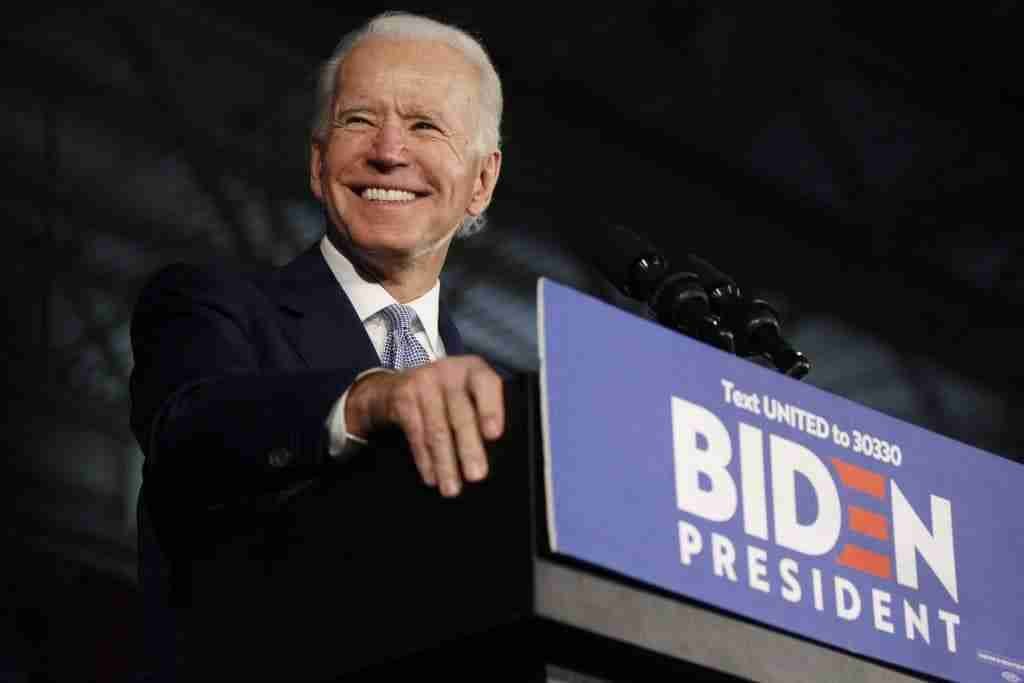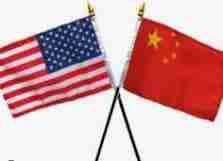While the world awaits a Biden Presidency, China is busy trying to shape the strategic chessboard in accordance with its own priorities and is busy signalling that it hopes for a new opening under Biden after a dramatic slide in US-China ties under Donald Trump. Addressing the Board of the US-China Business Council recently, China’s Foreign Minister Wang Yi suggested that the “most urgent task” for both countries was to ensure a smooth transition of ties and called for a resumption of talks with officials of the incoming Biden administration.
Making a pitch for “a direction that conforms to the interest of both countries’ people,” Wang talked of rebuilding “mutual trust in the next phase of China-US relations.” Clearly, China views this as an important window of opportunity before Biden administration firms up its China policy amidst further tightening of screws by Trump. Last month Chinese President Xi Jinping too had hinted at the prospect of a reset in ties during his congratulatory call to Biden, underlining his desire for the two sides to pursue healthy and stable relations.
This is happening even as Trump is busy trying to cement his foreign policy legacy of a robust China policy by introducing new travel restrictions for several members of the Chinese Communist Party over human rights abuses in Xinjiang and the disqualification of Hong Kong legislators. The US House of Representatives recently passed a law to remove Chinese firms off US stock exchanges if they do not fully comply with the country’s auditing rules which were passed by the House through a unanimous voice vote after being passed in a similar unopposed fashion in the Senate, underlining a strong bipartisan consensus in Washington for a tough China policy.
The Biden way
The Trump era has been marked by an escalating trade and technology conflict vis-à-vis China, eventually aiming for an economic decoupling between the two. The Biden administration is however expected to be more multilateral in its approach in confronting China. Yet, beyond this standard trope, there have been mixed signals so far. China is eager to wade into this as exemplified by Chinese Foreign Minister’s suggestion that the reason for the current state of relations between both countries is because “some people on the American side hold on to outdated Cold War mentality and ideological prejudices.”

Even as China seeks new rules of engagement with Biden, it is busy with its regional expansionist agenda. The Chinese military is targeting Taiwan like never before by conducting repeated air intrusions, naval patrols, cyber-attacks and other aggressive military exercises. These pressure tactics are aimed at ensuring that Taipei remains perpetually on the defensive so that it eventually will give up resisting its formidable foe.
In Hong Kong, Beijing is proving the worst fears of its critics right. It is busy using its national security law to target dissenters and pro-democracy activists. In one of the most high profile cases, media tycoon Jimmy Lai has been charged under Hong Kong’s national security law on suspicion of colluding with foreign forces and endangering national security. Activists like Joshua Wong have been sentenced for participating in pro-democracy protests last year.
Australia is another frontier where Chinese coercive tactics are on full display. The trade stand-off is escalating with China imposing new import duties on Australian wine last week, accusing Canberra of subsidising its firms to give them an advantage over Chinese ones. This came after China had already imposed tariffs of 107% to 212% on Australian wine last month and reduced its imports of Australian beef and coal.
The Chinese style
These moves are widely viewed as retaliatory measures against Australia for banning China’s Huawei from its 5G network in 2018, calling for an inquiry into the origins of the Covid-19 outbreak as well as Australian criticism of its actions in Hong Kong, Xinjiang, Taiwan and the South China Sea. Even diplomatic niceties were put aside when a spokesman for the Chinese government tweeted a doctored image of an Australian soldier holding a knife to the throat of an Afghan child. Beijing seems intent on making Canberra an exemplar of what might happen to nations if they try to challenge the Chinese Communist Party’s malevolent agenda frontally.
As the Biden administration would take time to settle down, the first half of 2021 will be crucial for Beijing to lay down new terms of engagement.
In other theatres, be it the South China Sea or the Himalayas, China has shown no inclination of backing down. And as the Biden administration would take time to settle down, the first half of 2021 will be crucial for Beijing to lay down new terms of engagement. It is shaping the battleground before Biden can come up with his own strategic response. So far, Biden has indicated that he would not immediately cancel the trade agreement that Trump struck with China nor take steps to remove tariffs on Chinese exports. But his China policy seems like a mishmash of “America first” and getting “allies on the same page.”
He shouldn’t forget that America’s allies also want Washington to lead when it comes to tackling China. Trump’s unpredictability had put China on the defensive and as the political shift takes shape in the US, Beijing will do its best to put the incoming administration and American allies on the defensive in order to retain the initiative. The sooner Biden articulates a clear China policy, the better it would be for the US, its allies and the larger global order.


